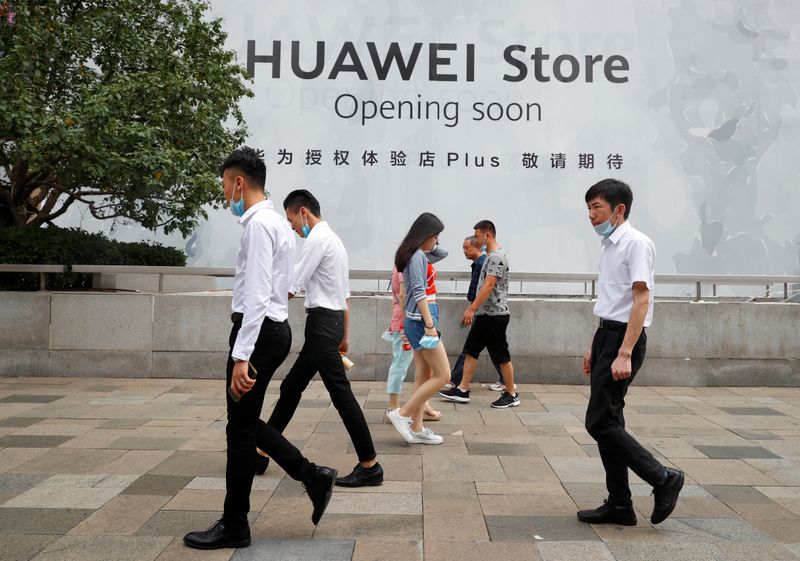LONDON (Reuters) – U.S sanctions designed to restrict the ability of China’s Huawei to source advanced microchips for 5G equipment are likely to have an impact on the viability of the supplier for Britain, UK media secretary Oliver Dowden said.
Britain granted Huawei a limited role in its future 5G networks in January but officials at the National Cyber Security Centre (NCSC) have since been studying the impact of the U.S. measures announced in May.
“We have, since the middle of May, had the U.S. sanctions in respect of Huawei, so clearly given that those sanctions are targeted at 5G … it is likely to have an impact on the viability of Huawei as a provider for the 5G network,” Dowden told a parliamentary committee.
Dowden said the government was in the latter stages of reviewing the NCSC analysis. “Off the back of that, we will determine what policy measures if necessary need to be taken in response,” he added.
British mobile operators BT <BT.L>, Vodafone <VOD.L> and Three <0215.HK> use Huawei’s equipment in their networks. BT had said a government decision in January to limit Huawei’s involvement in 5G would cost it 500 million pounds ($600 million).
Dowden said on Tuesday that the overall impact of the previous restrictions was roughly 1.5 billion pounds and a one-year delay in rolling out new 5G networks.
“Clearly if we impose further restrictions there will be a cost associated with that,” he said.
He wanted more competition in the market in addition to Huawei, Ericsson<ERICb.ST> and Nokia <NOKIA.HE>.
“Both Samsung <005930.KS> and NEC <6701.T> are obvious vendors that we would like to get into the UK market,” he said.
Dowden said he was also looking at financial incentives to encourage operators to adopt emerging Open RAN technology, which aims to reduce reliance on any one vendor.
(Reporting by Paul Sandle and Jack Stubbs; editing by Kate Holton and Stephen Addison)






















